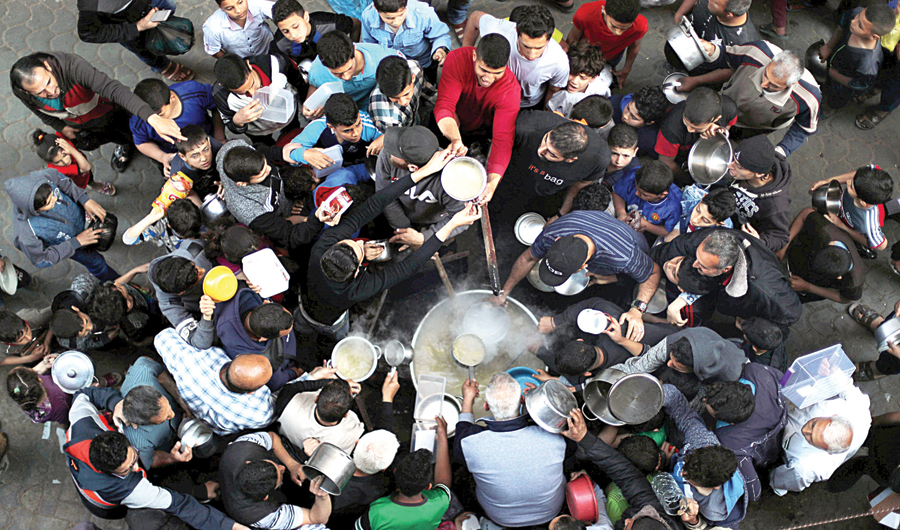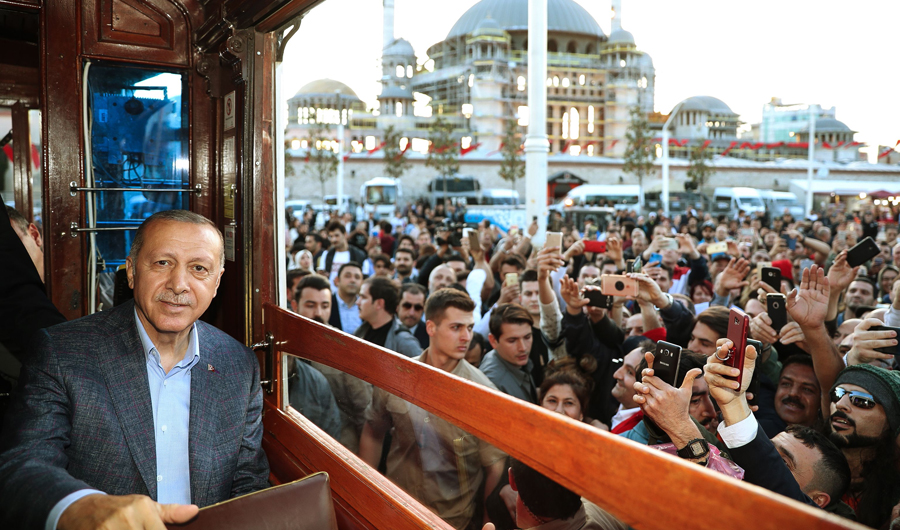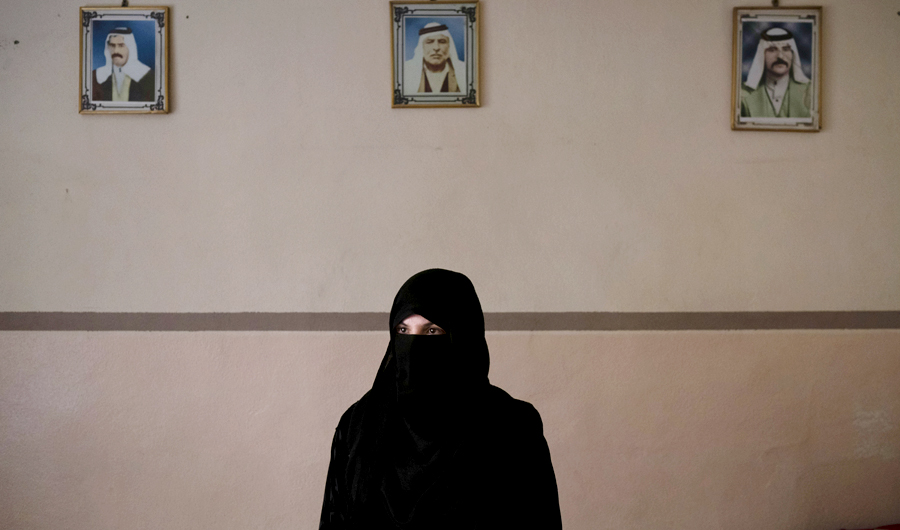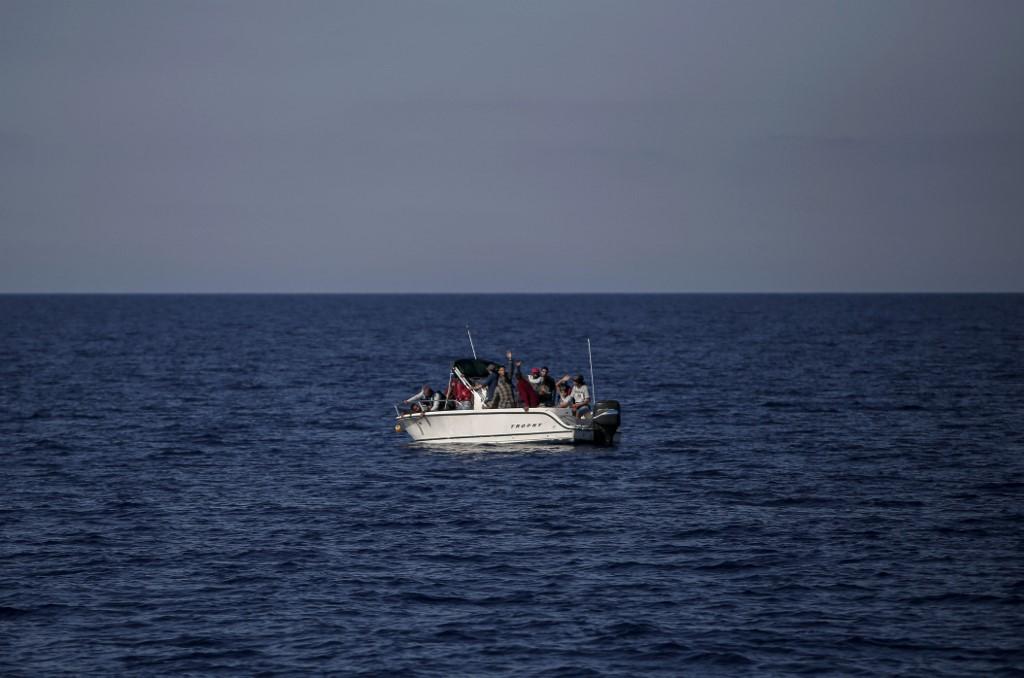Economic conditions ‘suffocating the joy of Ramadan’ in Gaza
GAZA CITY: Ramadan has arrived under very harsh conditions in the Gaza Strip, the result of the 13-year siege and waves of Israeli military escalation, as well as the internal division that has existed since mid-2007.
Gazans began the first day of Ramadan by burying the victims of Israeli airstrikes, which targeted hundreds of homes and public and private facilities over two days.
Israeli military escalation has increased the suffering of the Gazans, who have been denied the joy of Ramadan due to widespread poverty, high unemployment, the salary crisis and the inability of citizens to purchase items.
Employee Mohammed Sultan said that he was unable to provide for his seven-member family because of the delay in paying employees’ salaries in Gaza.
“We received the last salary about a month ago, and we expected to get our salaries before the month of Ramadan, but that did not happen,” Sultan said.
Employees of the Palestinian Authority (PA) led by President Mahmoud Abbas are no longer better off than their Hamas counterparts.
 Since March 2017, the PA has deducted more than 60 percent of the salaries of about 50,000 of its employees in Gaza. The PA says the measure is due to a financial crisis, but Palestinian factions and employees see it as “sanctions” to pressure Hamas “and to destabilize the Gaza Strip since it took control of the Gaza Strip in mid-June 2007.”
Since March 2017, the PA has deducted more than 60 percent of the salaries of about 50,000 of its employees in Gaza. The PA says the measure is due to a financial crisis, but Palestinian factions and employees see it as “sanctions” to pressure Hamas “and to destabilize the Gaza Strip since it took control of the Gaza Strip in mid-June 2007.”
“We did not feel the month of Ramadan, nor did we feel happy,” said Amal Al-Sattari, an employee of the PA.
“We lost the holy month and we did not feel it because of the salary crisis and our inability to shop for the needs of Ramadan, as we always used to do.”
“How are we going to provide iftar and suhoor? And we do not have one shekel in our house. It’s a real tragedy,” she said.
Al-Sattari, who is raising six children after her husband’s death seven years ago, asked how her children could be responsible for the political differences that were causing such suffering.
“Instead of taking into consideration our circumstances for the month of Ramadan, paying our full salaries, the PA increased the deduction rate, and about 40 percent of our salaries were paid to us a few days before Ramadan,” she said.
The suffering of workers is even more severe, with 52 percent unemployment and more than half of Gaza’s 2 million people dependent on humanitarian aid from UN and other charities.
“We have received Ramadan and the refrigerator is empty, and my sons cry, they want the lantern of Ramadan,” said Mohamed Allawi, a construction worker who is unemployed.
“The lowest price for the Ramadan lantern is NIS5 ($1.40), and if I had (the money), food and drink would be the first (items) to buy. We are in a situation that does not allow us and our children even a simple joy.”
Allawi said: “People everywhere are thinking about cooking the best food in Ramadan, and our iftar was beans and some rice on the first day, the same as the day before.”
Adnan Ahmed was forced to borrow money from a friend before Ramadan for shopping and celebrating with his nine-member family.
Adnan, a cleaner in a hospital in the southern Gaza city of Rafah, said that he and many of his acquaintances had to sell their wive’s jewelry to overcome the economic crisis. However, the crisis went on longer than expected and there was nothing left to be sold.
Mohammed Saleh, a cheese seller, complained of customers’ reluctance to buy, despite the cheapness and variety of goods offered, adding that he had been hoping for an economic rebound by the end of Ramadan.
Saleh said: “Although I arrived early on the first day of Ramadan and wanted to offer different types of cheeses, which are usually more popular in Ramadan, this was not enough to attract customers because of the deteriorating economic conditions of most people.”
He added that although many people visited the market, the majority could not afford to buy anything.
It was no different for the seller of sweets and nuts, Mohamed Taha, who confirmed that for the third year in a row, Ramadan was one of the most difficult times for the people of Gaza, because of poverty and unemployment. The situation had deteriorated more with the salary crisis of employees at the Palestinian Authority.
He said that he had been selling in the market for many years, but had not seen a recession like the one that was currently being experienced.
Shopper Hisham Madi complained about the rise in the price of many goods, increasing the burden placed on heads of households this month.

KSA delivers sacrificial meat to needy people in GazaIsrael reopens Gaza crossings as calm restored



